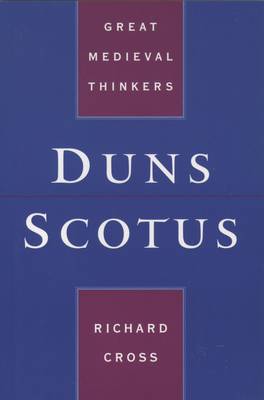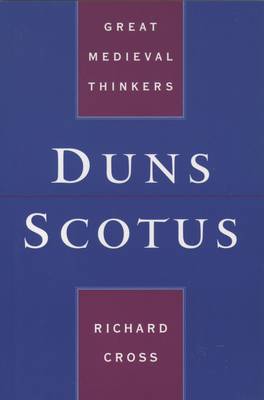
- Retrait gratuit dans votre magasin Club
- 7.000.000 titres dans notre catalogue
- Payer en toute sécurité
- Toujours un magasin près de chez vous
- Retrait gratuit dans votre magasin Club
- 7.000.0000 titres dans notre catalogue
- Payer en toute sécurité
- Toujours un magasin près de chez vous
150,95 €
+ 301 points
Format
Description
This is an accessible introduction to the life and thought of John Duns Scotus (c. 1266--1308), the scholastic philosopher and theologian who came to be called the Subtle Doctor. A native of Scotland (as his name implies), Scotus became a Franciscan and taught in Oxford, Paris, and Cologne. In his writings he put Aristotelian thought to the service of Christian theology and was the founder of a school of scholasticism called Scotism, which was often opposed to the Thomism of the followers of Thomas Aquinas. In particular, Scotus is well known for his defense of contra-causal free will and logical possibility and for his account of individuation in terms of "haecceity" or "thisness." Cross offers a clear introductory account of the most significant aspects of Scotus's theological thought. Theology is here construed broadly to include Scotus's philosophical investigation of God's existence and attributes. In addition to providing a clear, though not always uncritical, outline of Scotus's positions, Cross aims to show how Scotus's theories fit into modern debates, particularly contemporary debates in philosophical theology, and to point out Scotus's historical significance in the development of theology.
Spécifications
Parties prenantes
- Auteur(s) :
- Editeur:
Contenu
- Nombre de pages :
- 272
- Langue:
- Anglais
- Collection :
Caractéristiques
- EAN:
- 9780195125535
- Date de parution :
- 17-06-99
- Format:
- Livre broché
- Format numérique:
- Trade paperback (VS)
- Dimensions :
- 165 mm x 210 mm
- Poids :
- 335 g

Les avis
Nous publions uniquement les avis qui respectent les conditions requises. Consultez nos conditions pour les avis.






